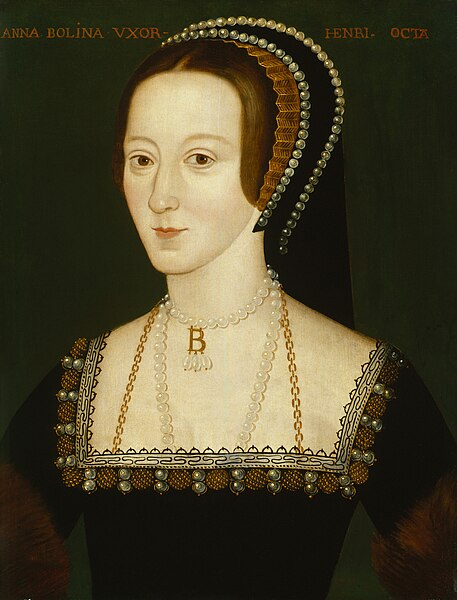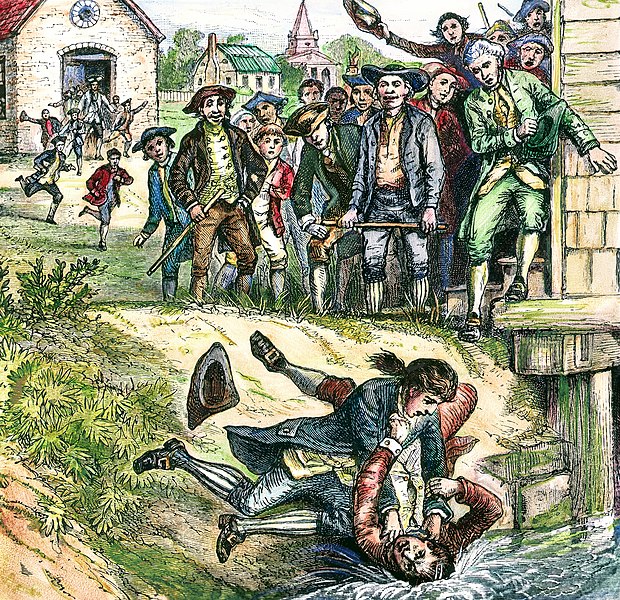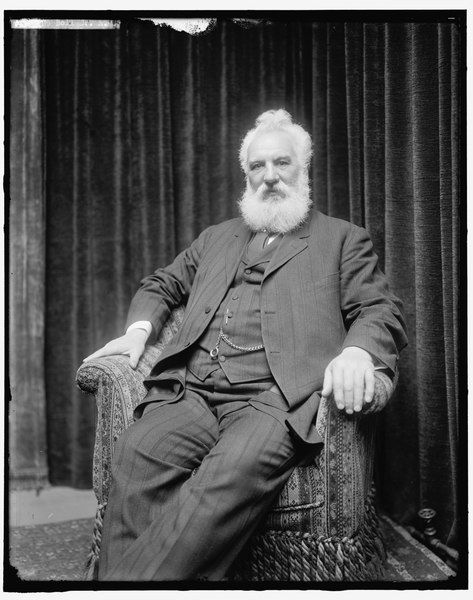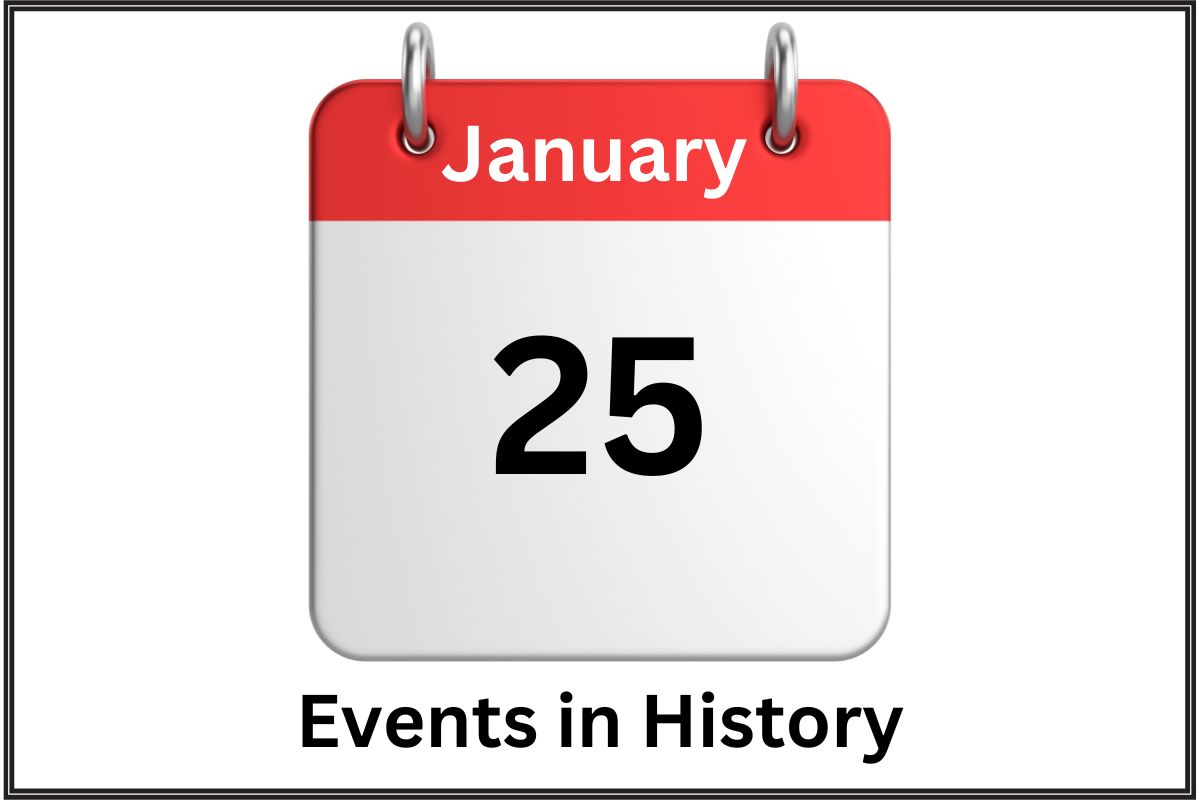January 25th stands as a day of historical significance, marked by a series of events that span the breadth of human experience and achievement.
From ancient political shifts that redefined empires to modern technological advancements connecting continents, this date encapsulates moments of triumph, tragedy, innovation, and revolution.
In this comprehensive overview, we journey through time to explore 20 pivotal events that occurred on January 25th. These stories unfold across the globe, highlighting key developments in politics, science, culture, and society.
From the ascent of Claudius as Roman Emperor in 41 AD to the groundbreaking landing of the Opportunity rover on Mars in 2004, each event contributes a unique thread to the intricate tapestry of our collective history.
January 25th Events in History
41 AD – After a night of negotiation, Claudius is accepted as Roman Emperor by the Senate
After the assassination of Caligula, the Roman Empire was in immediate need of a new emperor. Claudius, the uncle of Caligula, was found hiding behind a curtain in the palace by the Praetorian Guard.
The soldiers declared him emperor in a surprising turn of events, partly because of his connection to the Julio-Claudian line, and partly because the Guard believed he would be easily manipulated.
Also Read: January 24 – On this Day in History
His reign (41-54 AD) would prove them wrong, as Claudius demonstrated administrative competence and initiated several significant building projects and conquests, including the invasion of Britain.
1327 – Edward III becomes King of England, succeeding his father Edward II
Edward III ascended to the throne of England after his father, Edward II, was deposed by his mother, Queen Isabella, and her lover, Roger Mortimer.
Edward III was only 14 years old at the time. His reign began under a regency, but in 1330, Edward III asserted his authority by staging a coup and taking control of the government.
Also Read: January 26th Events in History
His reign, which lasted until 1377, is noted for the start of the Hundred Years’ War against France and significant developments in legislative and governmental reforms in England.

1533 – Henry VIII of England secretly marries his second wife Anne Boleyn
Henry VIII married Anne Boleyn in a secret ceremony, marking a pivotal moment in English history. This marriage followed Henry’s contentious split from the Catholic Church and his divorce from Catherine of Aragon, driven by his desire to have a male heir and his infatuation with Anne.
The marriage led to the establishment of the Church of England and initiated a series of events that would reshape English religion, politics, and society. Anne Boleyn’s failure to produce a male heir and her subsequent execution in 1536 would be just the beginning of Henry’s marital controversies.
1554 – São Paulo, Brazil, is founded by Jesuit priests
The city of São Paulo, Brazil, was founded on January 25, 1554, by Jesuit missionaries Manuel da Nóbrega and José de Anchieta. Their primary mission was to convert the indigenous peoples of the region to Christianity.
The Jesuits established a mission at the site, which became a center for the spread of Christianity in Brazil. São Paulo would grow from this modest missionary outpost into one of the world’s largest cities, known for its cultural diversity, economic power, and vibrant arts scene.
1755 – Moscow University is established on Tatiana Day
Moscow University, now known as Lomonosov Moscow State University, was founded on January 25, 1755, by a decree of Empress Elizabeth of Russia on the initiative of the scientist Mikhail Lomonosov.
The university’s establishment marked a significant step in the promotion of education and enlightenment in Russia.
Over the centuries, it has become one of the most prestigious educational institutions in Russia, known for its contributions to various scientific fields and its distinguished alumni, including Nobel Prize winners and leaders in various disciplines.
1787 – Shays’ Rebellion: The rebellion’s largest confrontation, outside the Springfield Armory, results in the killing of four rebels and the wounding of twenty
Shays’ Rebellion was an armed uprising that took place in Massachusetts. It was fueled by economic grievances of rural farmers who were struggling with high debt and taxes, which led to the threat of losing their farms to foreclosure.
The rebellion is named after Daniel Shays, a former Revolutionary War captain who led the protesters. The largest confrontation of the rebellion occurred outside the Springfield Armory on January 25, 1787, when state militia forces, under the command of General Benjamin Lincoln, confronted and defeated Shays and his followers.
This event led to four rebels being killed and twenty wounded. The rebellion highlighted the weaknesses of the Articles of Confederation and spurred calls for a stronger federal government, eventually leading to the drafting of the U.S. Constitution.

1858 – The Wedding March by Felix Mendelssohn is played at the marriage of Queen Victoria’s daughter, Princess Victoria, to Friedrich of Prussia
The Wedding March by Felix Mendelssohn became popular when it was played at the marriage of Queen Victoria’s daughter, Princess Victoria, to Friedrich of Prussia on January 25, 1858. The piece is part of Mendelssohn’s suite of incidental music for Shakespeare’s play “A Midsummer Night’s Dream.”
Though composed in 1842, its association with royal nuptials cemented its status as a traditional choice for the recessional at wedding ceremonies. The march’s joyful and grandiose character makes it one of the most recognizable pieces of wedding music around the world.
1879 – The Bulgarian National Bank is founded
The establishment of the Bulgarian National Bank on January 25, 1879, was a significant step in the financial independence and development of Bulgaria.
Coming shortly after the Russo-Turkish War (1877-1878) and the Treaty of San Stefano, which preliminarily freed Bulgaria from Ottoman rule, the founding of the national bank was crucial for the country’s new monetary system and economic stabilization.
The bank initially served as both a commercial bank and the issuer of Bulgaria’s national currency, reflecting the country’s aspirations towards economic sovereignty and modernization.
1890 – Nellie Bly completes her round-the-world journey in 72 days
Nellie Bly, the pioneering American journalist, completed her round-the-world journey on January 25, 1890. Inspired by Jules Verne’s novel “Around the World in Eighty Days,” Bly undertook her voyage to beat the fictional record set by Verne’s character Phileas Fogg.
Starting from New York City on November 14, 1889, she traveled primarily by steamship and railway, documenting her experiences in a series of dispatches to the New York World newspaper. Bly completed the journey in 72 days, setting a real-world record at the time and achieving worldwide fame for her adventure and reporting skills.
1909 – Richard Strauss’s opera “Elektra” receives its debut performance at the Dresden State Opera
“Elektra,” an opera in one act by Richard Strauss, premiered on January 25, 1909, at the Dresden State Opera. The libretto, written by Hugo von Hofmannsthal, is based on the Greek tragedy by Sophocles.
The opera represents a significant development in Strauss’s compositional style, noted for its complex dissonance, extensive use of leitmotifs, and challenging vocal parts.
“Elektra” marked the beginning of a fruitful collaboration between Strauss and Hofmannsthal. The opera’s success solidified Strauss’s reputation as a leading composer of the early 20th century, and it remains a staple of the operatic repertoire to this day.

1915 – Alexander Graham Bell inaugurates U.S. transcontinental telephone service, speaking from New York to Thomas Watson in San Francisco
On January 25, 1915, Alexander Graham Bell inaugurated the first U.S. transcontinental telephone service. Speaking from New York City, Bell replicated his famous first telephone call by speaking to his assistant, Thomas Watson, who was in San Francisco.
This event marked a significant milestone in telecommunications, demonstrating the capability to connect the Atlantic and Pacific coasts via telephone for the first time.
The introduction of this coast-to-coast telephone service revolutionized communication in the United States, making it possible for voices to be heard instantly over vast distances and laying the groundwork for the modern telecommunications era.
1924 – The first Winter Olympics take place in Chamonix, France
The first Winter Olympics were held in Chamonix, France, from January 25 to February 5, 1924. Officially known as the I Olympic Winter Games, this event was originally referred to as the “International Winter Sports Week” and was part of the 1924 Summer Olympics. It featured athletes from 16 nations competing in six sports across 16 events.
The success of the games led to the establishment of the Winter Olympics as a separate event from the Summer Olympics, held at four-year intervals. The Chamonix games marked the beginning of a tradition celebrating winter sports and athletic prowess on snow and ice.
1942 – Thailand declares war on the United States and United Kingdom
On January 25, 1942, Thailand declared war on the United States and the United Kingdom during World War II. This declaration came after Thailand was invaded by Japanese forces in December 1941.
The Thai government, led by Prime Minister Plaek Phibunsongkhram, decided to ally with Japan, seeing it as a means to advance Thailand’s own interests and territorial ambitions in Southeast Asia. The declaration of war facilitated the Japanese military’s use of Thailand as a base for their operations in the region.
However, it’s important to note that the Thai ambassador to the United States refused to deliver the declaration of war, leading to a unique situation where the U.S. did not officially recognize a state of war with Thailand.
1949 – The first Emmy Awards are presented at the Hollywood Athletic Club
The first Emmy Awards ceremony took place on January 25, 1949, at the Hollywood Athletic Club in Los Angeles, California.
The awards were created by the Academy of Television Arts & Sciences to honor excellence in the television industry, mirroring the Oscars for film. The first ceremony was a modest event compared to the lavish productions of today, with awards presented in just six categories.
The very first Emmy was awarded to Shirley Dinsdale, a ventriloquist, for Most Outstanding Television Personality. The Emmys have since grown to become one of the most prestigious awards in the television industry, recognizing excellence in various aspects of television production.
1959 – American Airlines Flight 320 crashes into the East River in New York City, killing 65 people
American Airlines Flight 320, a Lockheed L-188 Electra, crashed into the East River of New York City on February 3, 1959, while on approach to LaGuardia Airport. The flight was en route from Chicago to New York City. Of the 73 people on board, 65 were killed in the crash.
The investigation into the accident determined that the cause was pilot error; the crew failed to monitor their altitude properly during the approach in poor weather conditions.
The tragedy led to increased emphasis on the importance of cockpit discipline and the development of more advanced navigation and control systems to prevent similar accidents in the future.
1961 – In Washington, D.C., President John F. Kennedy delivers the first live presidential television news conference
On January 25, 1961, President John F. Kennedy held the first live televised presidential news conference in Washington, D.C. Just five days after his inauguration, Kennedy appeared before 400 reporters, addressing various topics including the release of two surviving crewmen from a U.S. Air Force RB-47 reconnaissance plane shot down by the Soviet Union, and his administration’s stance on Cuba.
The event marked a turning point in how presidents communicated with the American public and the world, utilizing television as a direct medium for conveying information and policy. Kennedy’s ease and confidence on camera helped to cement his public image as a charismatic and forward-thinking leader.
1971 – Idi Amin leads a coup deposing Milton Obote and becomes Uganda’s president
On January 25, 1971, Idi Amin Dada led a military coup that deposed President Milton Obote while he was attending a Commonwealth summit meeting in Singapore. Amin, who was the commander of the Ugandan army, seized power and declared himself president.
His rule, which lasted until 1979, was characterized by widespread human rights abuses, political repression, ethnic persecution, extrajudicial killings, nepotism, corruption, and economic mismanagement. An estimated 300,000 people were killed during his regime. Amin’s dictatorship has been one of the most brutal in African history, leaving a lasting impact on Uganda.
1980 – Mother Teresa is honored with India’s highest civilian award, the Bharat Ratna
Mother Teresa was honored with the Bharat Ratna, India’s highest civilian award, on January 25, 1980. This recognition was bestowed upon her for her tireless service to the poor, sick, and destitute through her Missionaries of Charity in Kolkata (formerly Calcutta) and other parts of the world. Born in Skopje (now in North Macedonia) in 1910, Mother Teresa dedicated her life to helping those in need, particularly the disenfranchised and dying.
Her work gained international acclaim, and she became a global symbol of charitable work and compassion for the needy. Mother Teresa was canonized as a saint by the Roman Catholic Church in 2016.
1990 – Avianca Flight 52 crashes into Cove Neck, New York, after a miscommunication between the flight crew and JFK Airport officials, killing 73 people
On January 25, 1990, Avianca Flight 52 from Bogotá, Colombia, crashed into Cove Neck, Long Island, New York, after running out of fuel. The crash resulted in the deaths of 73 people, including 8 of the 9 crew members, with 85 survivors.
The Boeing 707 was on approach to John F. Kennedy International Airport when it encountered multiple delays and holding patterns due to bad weather and air traffic congestion.
Communication problems between the flight crew, who were not native English speakers, and air traffic controllers contributed to the failure to convey the urgency of their fuel situation. The accident led to significant changes in international aviation communication protocols and fuel reserve regulations.
2004 – Opportunity rover (MER-B) lands on surface of Mars
The Opportunity rover, also known as MER-B (Mars Exploration Rover – B), landed on the surface of Mars on January 25, 2004. Its mission was part of NASA’s Mars Exploration Rover program, aimed at exploring the Martian surface and geology, and to search for signs of past water activity on Mars.
Opportunity landed in Meridiani Planum, a plain which was believed to hold a layer of hematite, indicating the past presence of water. The rover exceeded its planned 90-day mission, operating for nearly 15 years and making groundbreaking discoveries, including evidence that Mars once had conditions that could have supported microbial life.
Opportunity’s mission was declared complete on February 13, 2019, after the rover failed to respond to signals, likely due to a dust storm that covered its solar panels.
